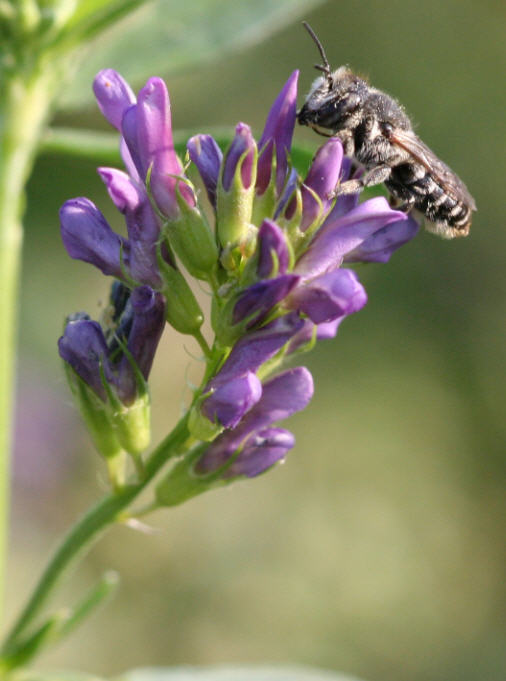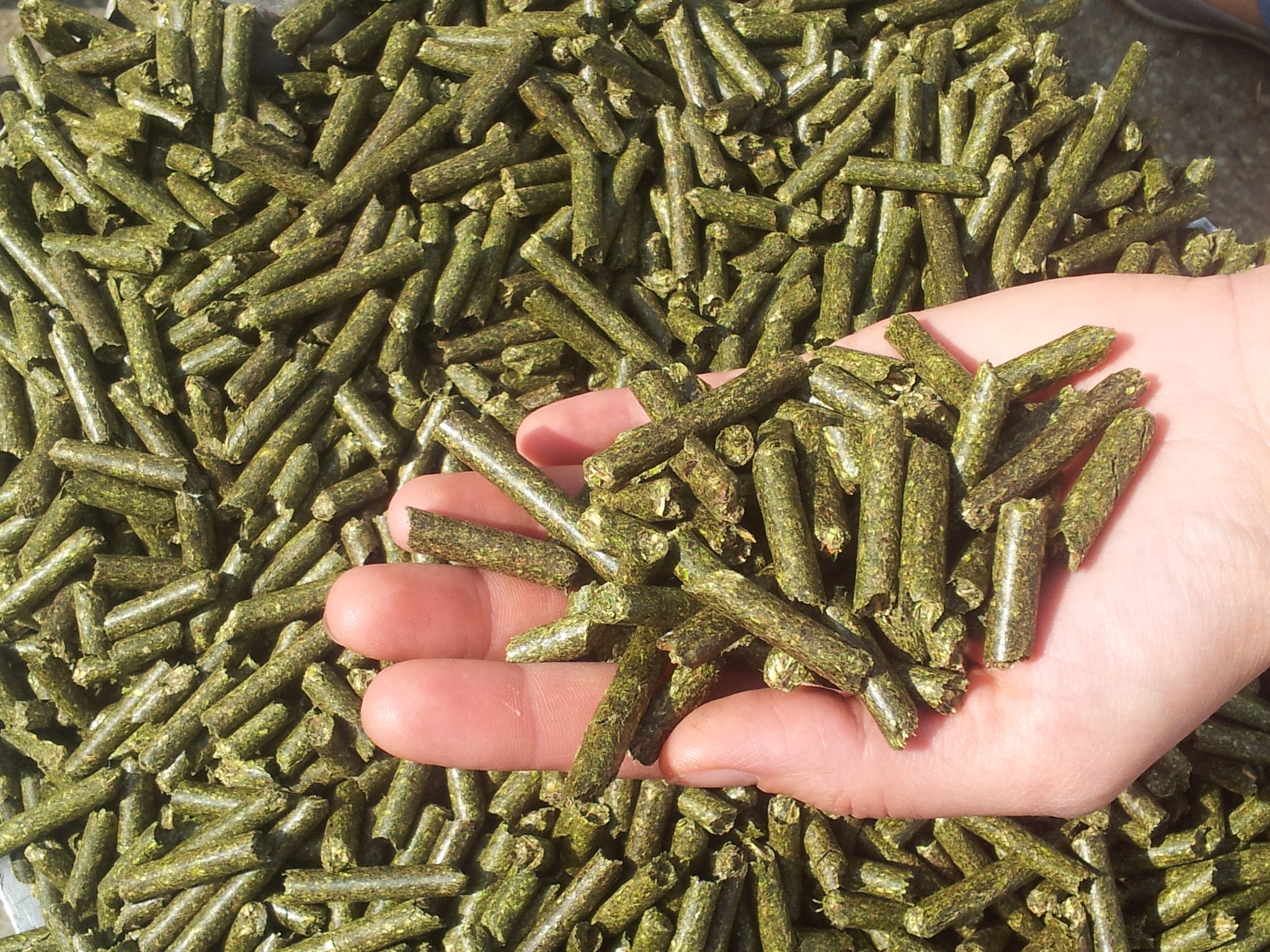ALFALFA
Alfalfa – The queen of forage
Alfalfa is the forage plant par excellence, the most widespread in Italy and throughout the world. It is an irreplaceable friend of nature, essential for biodiversity and enriching the soil with minerals. It is an essential source of plant proteins for cattle in addition to being rich in fibres, vitamins and minerals. The wealth of alfalfa protein depends on the symbioses with rhizobia, the bacteria that colonises the roots and transforms gaseous nitrogen into organic nitrogen.
Italy has a high propensity to Alfalfa cultivation: in this area, due to the favourable weather conditions and soil composition, Alfalfa can be cultivated without the use of chemical fertilizers or pesticides or waterbed irrigation. All these characteristics make alfalfa a plant that respects the ecology and thus the ideal crop for organic forage farming.


Timeline
Discovered 9,000 years ago in Central-Western Asia where it was called alfachpacah “the best of foods”, alfalfa was brought to Europe around 490 B.C.
It began to spread in Italy around 150 B.C. and its precious properties were thus described by period historians:
“The best forage is alfalfa, first since once planted, it lasts for ten years, then since it is cut four and even six times a year, because it fattens the field. Because even the weakest herd regains strength eating it, because it is an excellent cure for sick cattle, because a single jugerum of alfalfa is more than enough to feed three horses for a whole year”
(Lucio Columella, De re rustica)
Alfalfa today
In the last decades, Alfalfa – traditional agricultural product for animal feeding – has joined, thanks to the process of dehydration the era of modernity and progress. This new dimension makes it essential, not only for its traditional role as basis for animal nutrition, but above all, as a guarantor of performing agriculture, environment protection and preservation of the territory.
Alfalfa today is grown on about 35 million hectares on earth leading to an annual output of 47 million tons. In Europe, where production reaches aprox 10 million, cultivation is mainly concentrated in France, Spain and Italy. Alfalfa is an important source of vegetable proteins which it is naturally rich in, fundamental for breeding rabbits, ruminant for milk and meat, laying hens and horses.
However, the less known properties of Alfalfa are the ones making it “the most sustainable culture”:
– it is essential for bio-diversity, as Alfalfa hosts a micro-fauna up to 100 times bigger than the one of wheat, and for bee farming, the prolong blooming period provides nourishment to bees from May to October.
– with its roots up to 5 meters deep it ensures the exchange of organic matter with the soil all year long, thereby fighting its erosion.
– it is at the same time purifier and supplier of nitrogen – alfalfa absorbs nitrogen from the air and from the ground, so it does not need any nitrogen fertilizer, while its deep roots can capture the extra nitrogen present in the ground and releasing it to the following crop.
– it has a fundamental role against pollution from agricultural activities related to crop rotation – alfalfa crop lasts up to 5 years on average, while cereals are annual crops.
– it is essential for animal health and productivity– a diet based on Alfalfa guarantees animals’ health. Researches carried out by EFSA (European Agency for the Safety of Food) show that Alfalfa increases and improves milk production, reduces fat, while improving tenderness and red coloring meat. Its pigments give the traditional yellow color to eggs’ yolk, while fatty acids (Omega 3) enriche rabbits’ meat.
-…for humans, as well – rich in vitamins, folic acid, minerals soluble and insoluble fibers and antioxidant pigments like chlorophyll and beta carotene, Alfalfa is increasingly used for human nutrition. In addition, in 2009, ‘EFSA (European Food Safety Authority) has approved the leaf extract of Alfalfa, used as a protein supplement, able to give an important contribution to fight against hunger around the world.
In 60 years of activity, Gruppo Carli carried on continuous researches and studies on Alfalfa, as well supports its cultivation for a sound and sustainable agriculture.

